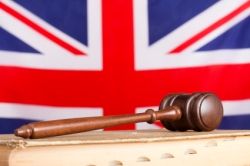 The anonymity of rape suspects has been debated recently, and in light of the Michael Le Vell case, questions have been asked by legal representatives. The press coverage of this particular case has highlighted more than ever that rape suspects and anonymity is a problem.
The anonymity of rape suspects has been debated recently, and in light of the Michael Le Vell case, questions have been asked by legal representatives. The press coverage of this particular case has highlighted more than ever that rape suspects and anonymity is a problem.
In the United Kingdom, the basic instrument in law is that any suspect of any crime is ‘innocent until proven guilty’. This places the onus of proof on the accuser to prove to a jury that the offence did happen. Any jury is instructed by the judge that they must ‘prove beyond reasonable doubt’ before convicting a suspect. The crime of rape is one of the hardest crimes to prove, as there are only two witnesses in the majority of cases. This, then, is the word of one against the other. Whether the case involves someone famous or the average person on the street, this mantra is the same.
However, recent press front pages have led to divided public opinion on the matter of anonymity of rape suspects, and more so when it is a person who is frequently in the public eye.
Anonymity is given to the accuser, and certainly if the accuser is underage, then this must remain so, and is the case for legal reasons. An accuser over the age of 18 can, at their own behest, waive this anonymity. This is not currently the case for suspects.
The problem stems not just from the press. Court listings are posted in public, and while the crime is not listed, the press do collect the court listings from the clerk at the front desk daily. Court listings are displayed in court waiting rooms; therefore, the public can view them at any time.
The burning question is that of rape suspects. Should they be given anonymity, and why should a rape suspect be treated different to any other suspect? This is the question that has divided public and professional opinion.
If we look logically at the case of a rape suspect, then it is not in the public interest to know the details of a suspect once the CPS have decided to charge on the evidence presented before them. However, public opinion is otherwise. The public feels it is in their interest, and they want to see scandalous headlines. Modern technology now affords any one of us the opportunity to join in the naming and shaming of suspects. This in itself shows that the British public are not entirely attuned to the matter of criminal law.
The recent front pages on Michael Le Vell have given the public every little detail of his private life. Each individual in our civilised country has the right to a private life – this is in Article 8 of the Human Rights Act, which states that an individual has a right to privacy. This begs the question, then, that any person who is plastered over the front pages of a newspaper has indeed not been allowed that human right.
The argument here is that the public have a right to know. They don’t. There is no law in this country that gives the public the right to know an innocent man or woman’s private life. The press are an entity unto themselves, and it is they who decide what is in the public interest. Sadly anything involving a person who is in the public eye makes for money-grabbing headlines and increases sales and online traffic. Yet the casualties of this are the families of both parties, a possibly influenced jury and the justice system in general.
The opposing argument is why should a rape suspect be treated any different to any other suspect? That makes for a good argument in a simple sentence. Rape is such an emotive topic and raises even the mildest of person to form an opinion. Why is it that rape suspects should be given anonymity when the case is at the charge-only stage and during a trial? The public and press are fully aware that all suspects are innocent until proven guilty. Yet the speculation and attacking nature of people is apparent based on what they’re reading.
Perhaps rather than look at the criminal law being changed, it’s time for some stricter press regulation laws, and that is a topic that has been discussed for some years now. Michael Le Vell had the most intimate details of his life disclosed that should only ever be kept private. Sadly, the wheels of the multi-national press industry are oiled by money; this should be at the heart of the argument rather than the law that does have its flaws, yet remains again the subject on many a lip.

